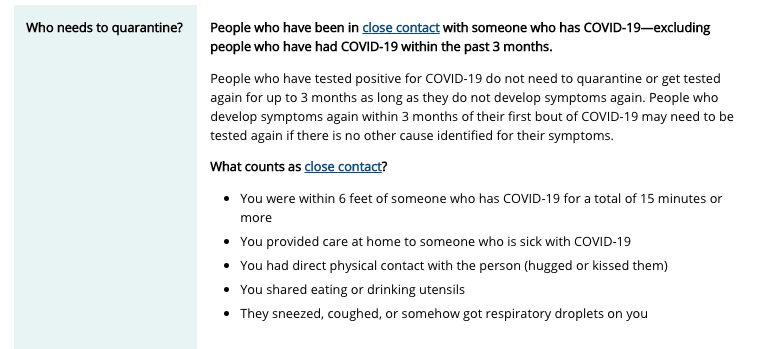Join science editor @MoNscience today for another Q&A on #COVID19 at 1pm ET. Reply below with questions and read more here https://abs.twimg.com/emoji/v2/... draggable="false" alt="👇" title="Rückhand Zeigefinger nach unten" aria-label="Emoji: Rückhand Zeigefinger nach unten"> https://on.natgeo.com/34EToQ4 ">https://on.natgeo.com/34EToQ4&q...
https://abs.twimg.com/emoji/v2/... draggable="false" alt="👇" title="Rückhand Zeigefinger nach unten" aria-label="Emoji: Rückhand Zeigefinger nach unten"> https://on.natgeo.com/34EToQ4 ">https://on.natgeo.com/34EToQ4&q...
Let’s clear up some terms here.
COVID PCR tests are highly accurate. They’re both sensitive (i.e., can detect low amounts of viral RNA from a swab) and specific (i.e., can distinguish SARS-CoV-2 from other viruses) https://twitter.com/comtnsbrews/status/1322200657231638529?s=20">https://twitter.com/comtnsbre...
COVID PCR tests are highly accurate. They’re both sensitive (i.e., can detect low amounts of viral RNA from a swab) and specific (i.e., can distinguish SARS-CoV-2 from other viruses) https://twitter.com/comtnsbrews/status/1322200657231638529?s=20">https://twitter.com/comtnsbre...
Early on after exposure/infection, the virus takes time to multiply. So during the first 4-7 days, the viral loads in the body may be too low for detection by PCR, even though a person may be contagious during this time. #supplementaryMaterial">https://www.thelancet.com/journals/laninf/article/PIIS1473-3099(20)30773-8/fulltext #supplementaryMaterial">https://www.thelancet.com/journals/...
But notice, after a virus takes hold, the body can take several weeks to clear it, even though the person may no longer be contagious, hence why people can still test positive on PCR.
#supplementaryMaterial">https://www.thelancet.com/journals/laninf/article/PIIS1473-3099(20)30773-8/fulltext #supplementaryMaterial">https://www.thelancet.com/journals/...
#supplementaryMaterial">https://www.thelancet.com/journals/laninf/article/PIIS1473-3099(20)30773-8/fulltext #supplementaryMaterial">https://www.thelancet.com/journals/...
In other words, COVID PCR testing itself is not flawed. The issues are when and how we use it.
That’s why guidelines on contagiousness revolve around both the timing of testing and when symptoms resolve.
That’s why guidelines on contagiousness revolve around both the timing of testing and when symptoms resolve.
WHO: https://www.who.int/publications/i/item/criteria-for-releasing-covid-19-patients-from-isolation
CDC:">https://www.who.int/publicati... https://www.cdc.gov/coronavirus/2019-ncov/hcp/duration-isolation.html">https://www.cdc.gov/coronavir...
CDC:">https://www.who.int/publicati... https://www.cdc.gov/coronavirus/2019-ncov/hcp/duration-isolation.html">https://www.cdc.gov/coronavir...
Notice in those CDC guidelines, the centers do NOT call for retesting within the first three months after an initial positive result. https://twitter.com/comtnsbrews/status/1322201110363267074?s=20">https://twitter.com/comtnsbre...
The CDC has just released its protocols for investigating reinfection ( https://www.cdc.gov/coronavirus/2019-ncov/php/reinfection.html)">https://www.cdc.gov/coronavir... But the rules for isolation after reinfection remain the same: It can end 10 days after symptom onset and resolution of fever for at least 24 hours
This question might be on your mind because of an Oct. 26 study about COVID-19 antibodies that went viral. https://twitter.com/garciaa_brody/status/1322194420674932737?s=20">https://twitter.com/garciaa_b...
Here’s the thing: No one knows yet how long COVID-19 immunity lasts in terms of immune protection and this new study does NOT answer that question. https://twitter.com/TwitterMoments/status/1321115274263826432">https://twitter.com/TwitterMo...
…as followers of my twitter already know.  https://abs.twimg.com/emoji/v2/... draggable="false" alt="😅" title="Lächelndes Gesicht mit offenem Mund und Angstschweiß" aria-label="Emoji: Lächelndes Gesicht mit offenem Mund und Angstschweiß"> https://twitter.com/MoNscience/status/1321088509894156289">https://twitter.com/MoNscienc...
https://abs.twimg.com/emoji/v2/... draggable="false" alt="😅" title="Lächelndes Gesicht mit offenem Mund und Angstschweiß" aria-label="Emoji: Lächelndes Gesicht mit offenem Mund und Angstschweiß"> https://twitter.com/MoNscience/status/1321088509894156289">https://twitter.com/MoNscienc...
Waning antibody levels are a normal part of an immune response. Also, the phenomenon doesn’t mean that a person’s antibody shield has gone away.
Think of it this way: Once you finish putting out a fire, you don’t leave the hose running. But you also don’t throw away the hose.
Think of it this way: Once you finish putting out a fire, you don’t leave the hose running. But you also don’t throw away the hose.
For more, check out this story by @edbites. It explains why there is more to a person’s COVID-19 immunity than antibodies. https://on.natgeo.com/3jGwA6T ">https://on.natgeo.com/3jGwA6T&q...
I love a good opportunity to chat about best practices with COVID-19 news consumption. https://twitter.com/curtisc5105/status/1322197190513741826?s=20">https://twitter.com/curtisc51...
You’re referring to this Sept. 24 story in The Guardian? https://www.theguardian.com/world/2020/sep/24/close-to-100-accuracy-airport-enlists-sniffer-dogs-to-test-for-covid-19">https://www.theguardian.com/world/202...
Did you notice that the research is “preliminary” and that the team didn’t provide actual data nor a report?
Did you notice that the research is “preliminary” and that the team didn’t provide actual data nor a report?
In fact, researchers in the United States are looking at the potential for using dogs to screen for COVID-19.
Audrey R. Odom John from @ChildrensPhila presented results on a preliminary study last week during @IDWeek2020 https://fb.watch/1s3XxsPG24/ ">https://fb.watch/1s3XxsPG2...
Audrey R. Odom John from @ChildrensPhila presented results on a preliminary study last week during @IDWeek2020 https://fb.watch/1s3XxsPG24/ ">https://fb.watch/1s3XxsPG2...
Notice the sensitivity/specificity for canine sniffers
For normal PCR testing, those values tend to be 97% and 100%, respectively.
In other words, PCR testing is way more accurate at spotting SARS-CoV-2 and less likely to confuse it for another virus. https://www.idsociety.org/globalassets/idsa/practice-guidelines/covid-19/diagnostics/idsa-covid-19-guideline_dx_version-1.0.1.pdf">https://www.idsociety.org/globalass...
For normal PCR testing, those values tend to be 97% and 100%, respectively.
In other words, PCR testing is way more accurate at spotting SARS-CoV-2 and less likely to confuse it for another virus. https://www.idsociety.org/globalassets/idsa/practice-guidelines/covid-19/diagnostics/idsa-covid-19-guideline_dx_version-1.0.1.pdf">https://www.idsociety.org/globalass...
Also, if you watch Dr. Odom John’s presentation, you’ll learn that the sniffer tests required urine samples from people.
As @jane_c_hu wrote in August, these logistical constraints limit the utility of COVID-sniffing dogs. https://slate.com/technology/2020/08/covid-19-sniffing-dogs.html">https://slate.com/technolog...
As @jane_c_hu wrote in August, these logistical constraints limit the utility of COVID-sniffing dogs. https://slate.com/technology/2020/08/covid-19-sniffing-dogs.html">https://slate.com/technolog...
Tl;dr: It’s fascinating that humans give off scents related to being infected with the coronavirus, but don’t hold your breath on COVID-sniffing dogs.
General rules of thumb:
1. Symptoms tend to start 4 to 6 days after exposure/infection with the virus, but it can take up to 14 days.
2. The infectious period starts 1 to 3 days before symptoms begin.
https://theconversation.com/how-long-are-you-infectious-when-you-have-coronavirus-135295
https://theconversation.com/how-long-... href=" https://twitter.com/Soulsol7/status/1322233371980943361">https://twitter.com/Soulsol7/...
1. Symptoms tend to start 4 to 6 days after exposure/infection with the virus, but it can take up to 14 days.
2. The infectious period starts 1 to 3 days before symptoms begin.
https://theconversation.com/how-long-are-you-infectious-when-you-have-coronavirus-135295
Takeaway: A person can be contagious before symptoms arise. Indeed, this scenario explains 50% of new cases in the United States.
So if you know that you’ve been exposed to a #COVID19 case or you’re showing symptoms, kindly stay home. https://www.cdc.gov/coronavirus/2019-ncov/if-you-are-sick/quarantine.html">https://www.cdc.gov/coronavir...
So if you know that you’ve been exposed to a #COVID19 case or you’re showing symptoms, kindly stay home. https://www.cdc.gov/coronavirus/2019-ncov/if-you-are-sick/quarantine.html">https://www.cdc.gov/coronavir...
Hard to say now how common reinfection will be, given only a handful of cases have been confirmed so far.
Earlier this month, @VirusesImmunity wrote a nice breakdown for @TheLancetInfDis
https://doi.org/10.1016/S1473-3099(20)30783-0">https://doi.org/10.1016/S... https://twitter.com/AnupamkPandey/status/1322231180339503104?s=20">https://twitter.com/AnupamkPa...
Earlier this month, @VirusesImmunity wrote a nice breakdown for @TheLancetInfDis
https://doi.org/10.1016/S1473-3099(20)30783-0">https://doi.org/10.1016/S... https://twitter.com/AnupamkPandey/status/1322231180339503104?s=20">https://twitter.com/AnupamkPa...
Based on past experience with highly contagious coronaviruses (namely the ones that cause colds), I would expect reinfections to eventually happen on a broad scale.
Regardless, the equation for overcoming COVID-19 remains the same: social distancing, good hygiene, wear masks, test as fast as you can, isolate the sick.
For more, see this story from August by @CraigAWelch https://on.natgeo.com/3ebKMUd ">https://on.natgeo.com/3ebKMUd&q...
For more, see this story from August by @CraigAWelch https://on.natgeo.com/3ebKMUd ">https://on.natgeo.com/3ebKMUd&q...
And as I wrote earlier this month, this advice applies until we have a highly effective vaccine. https://on.natgeo.com/3kLvl7L ">https://on.natgeo.com/3kLvl7L&q...
That’s an interesting one.
So, the entire planet isolates…no one broke the rules…and we somehow kept cases from spilling from hospitals.
Yes. If you think about it, that’s essentially what New Zealand, Thailand, and Taiwan have done. https://twitter.com/Tom18369195/status/1322242794493194244?s=20">https://twitter.com/Tom183691...
So, the entire planet isolates…no one broke the rules…and we somehow kept cases from spilling from hospitals.
Yes. If you think about it, that’s essentially what New Zealand, Thailand, and Taiwan have done. https://twitter.com/Tom18369195/status/1322242794493194244?s=20">https://twitter.com/Tom183691...
(South Korea too, for the most part.)
As much as people fight over masks and lockdowns, the solution has been the same since the beginning:
If everyone follows the health guidance, COVID-19 cases will drop and we can safely reopen, even before a vaccine is ready.
If everyone follows the health guidance, COVID-19 cases will drop and we can safely reopen, even before a vaccine is ready.
If we don’t come together to beat this pandemic, people will continue to suffer.
For example, a silent physical and mental health crisis is emerging among thousands of kidney disease patients, as @edbites reports for us. https://on.natgeo.com/2TFku3i ">https://on.natgeo.com/2TFku3i&q...
For example, a silent physical and mental health crisis is emerging among thousands of kidney disease patients, as @edbites reports for us. https://on.natgeo.com/2TFku3i ">https://on.natgeo.com/2TFku3i&q...

 Read on Twitter
Read on Twitter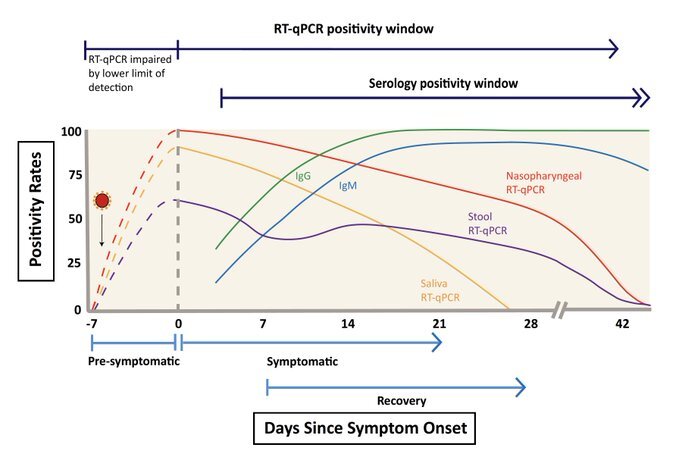
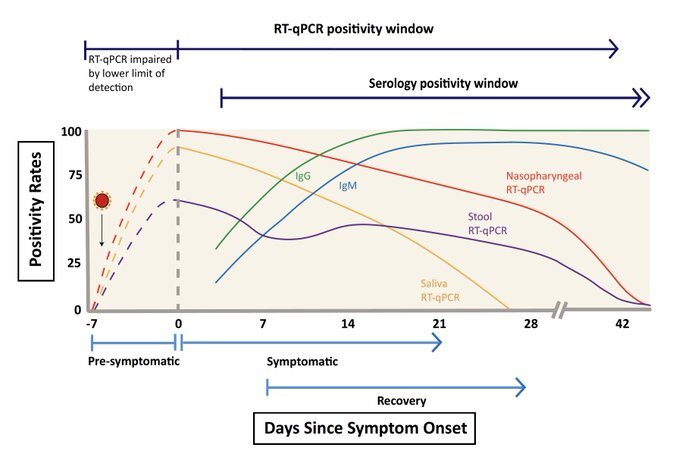
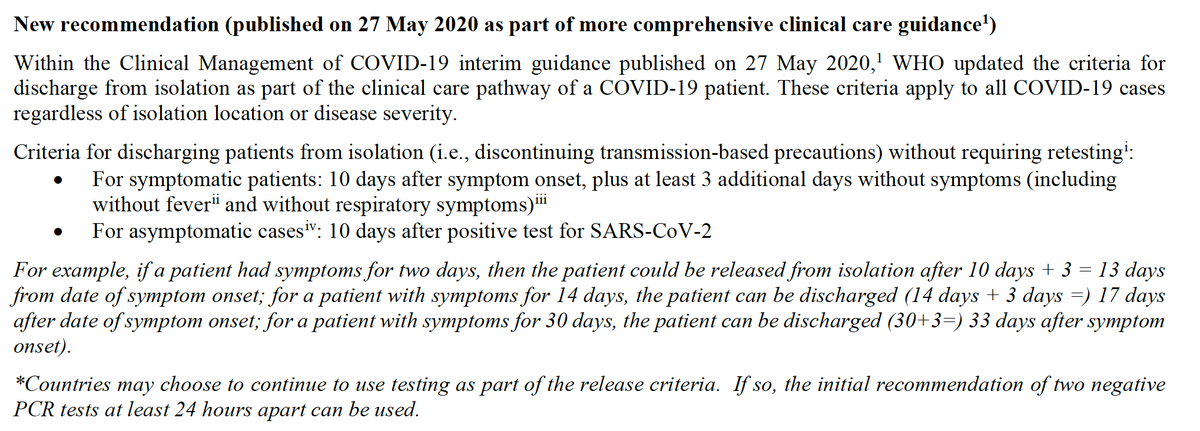
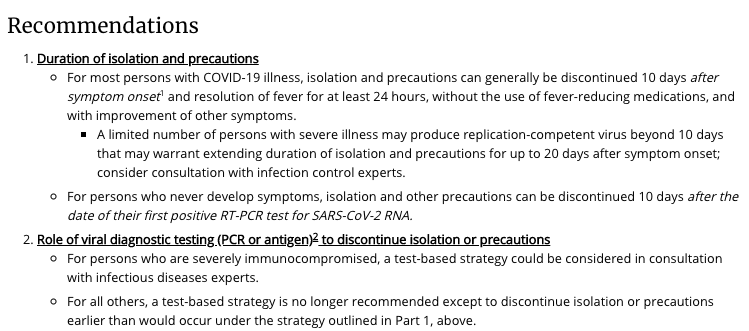
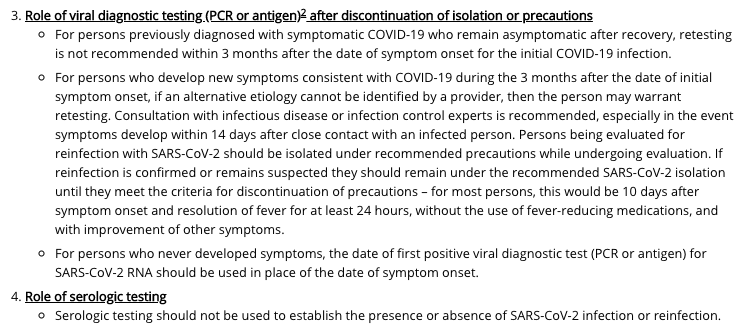
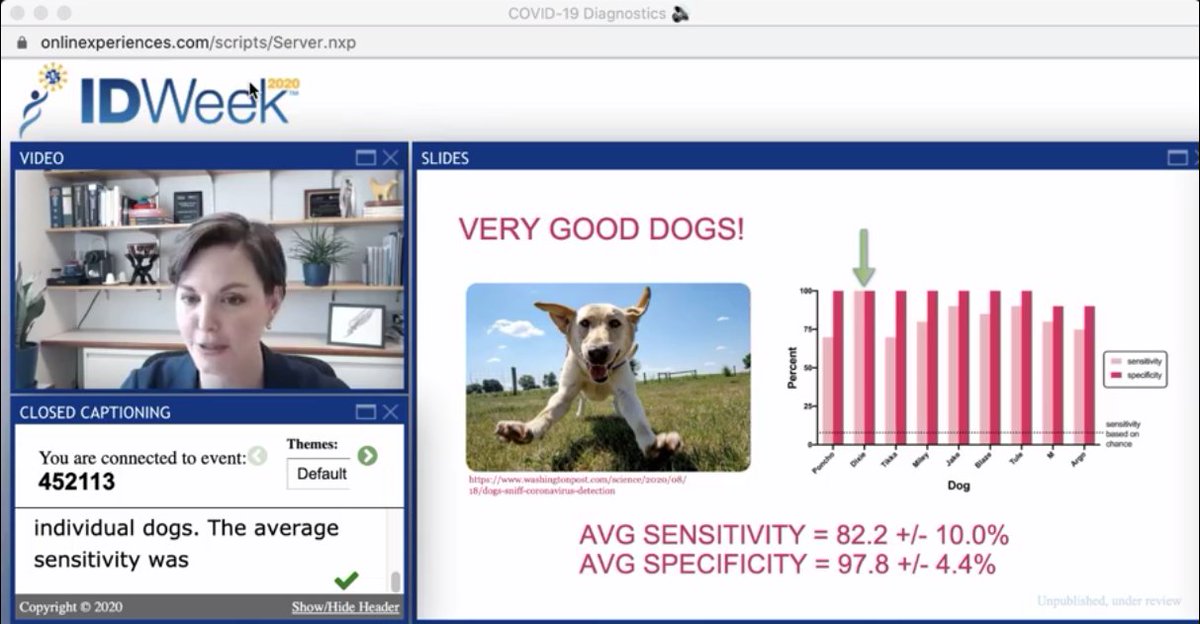
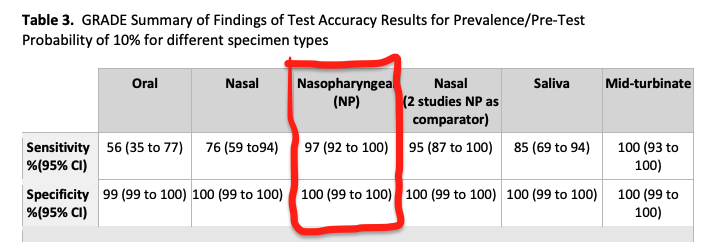
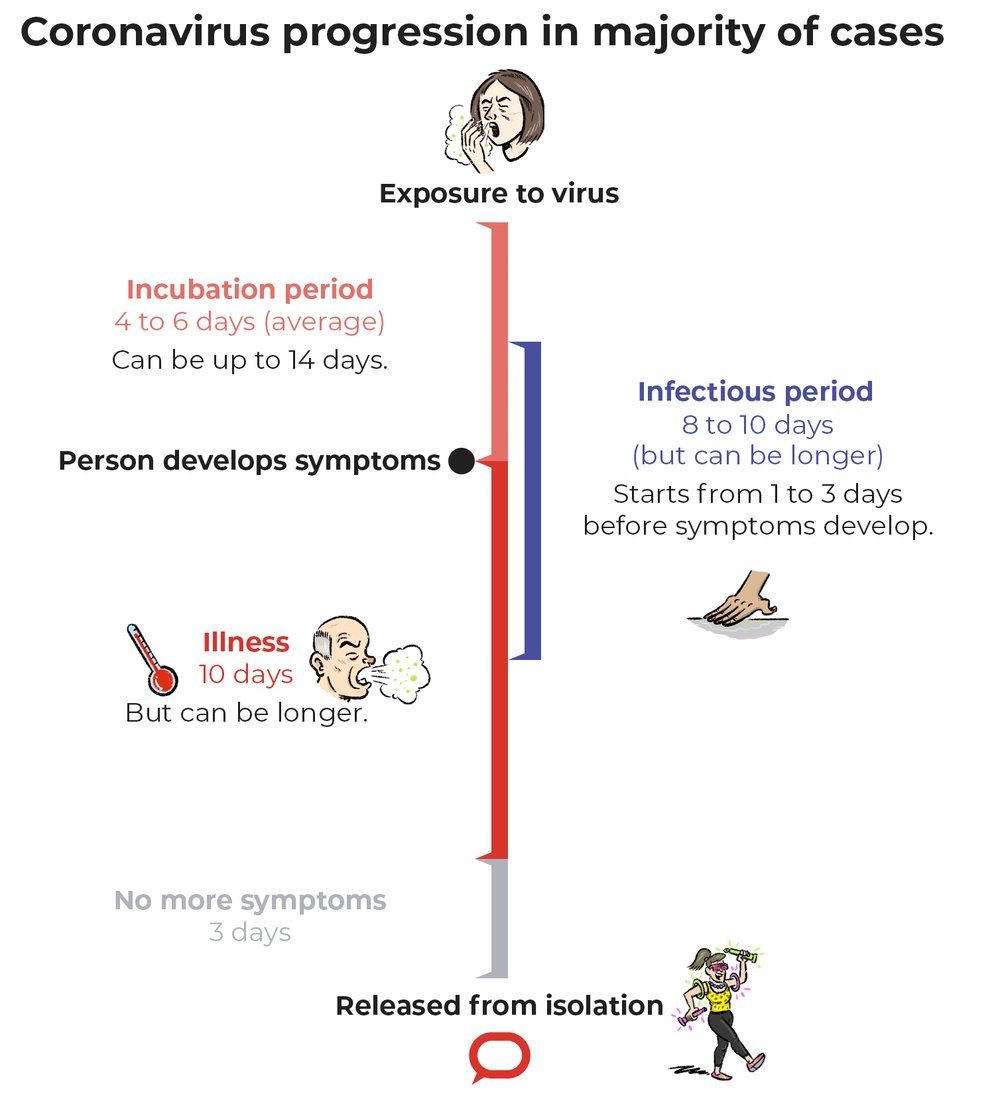 https://twitter.com/Soulsol7/..." title="General rules of thumb:1. Symptoms tend to start 4 to 6 days after exposure/infection with the virus, but it can take up to 14 days.2. The infectious period starts 1 to 3 days before symptoms begin. https://theconversation.com/how-long-... href=" https://twitter.com/Soulsol7/status/1322233371980943361">https://twitter.com/Soulsol7/..." class="img-responsive" style="max-width:100%;"/>
https://twitter.com/Soulsol7/..." title="General rules of thumb:1. Symptoms tend to start 4 to 6 days after exposure/infection with the virus, but it can take up to 14 days.2. The infectious period starts 1 to 3 days before symptoms begin. https://theconversation.com/how-long-... href=" https://twitter.com/Soulsol7/status/1322233371980943361">https://twitter.com/Soulsol7/..." class="img-responsive" style="max-width:100%;"/>
